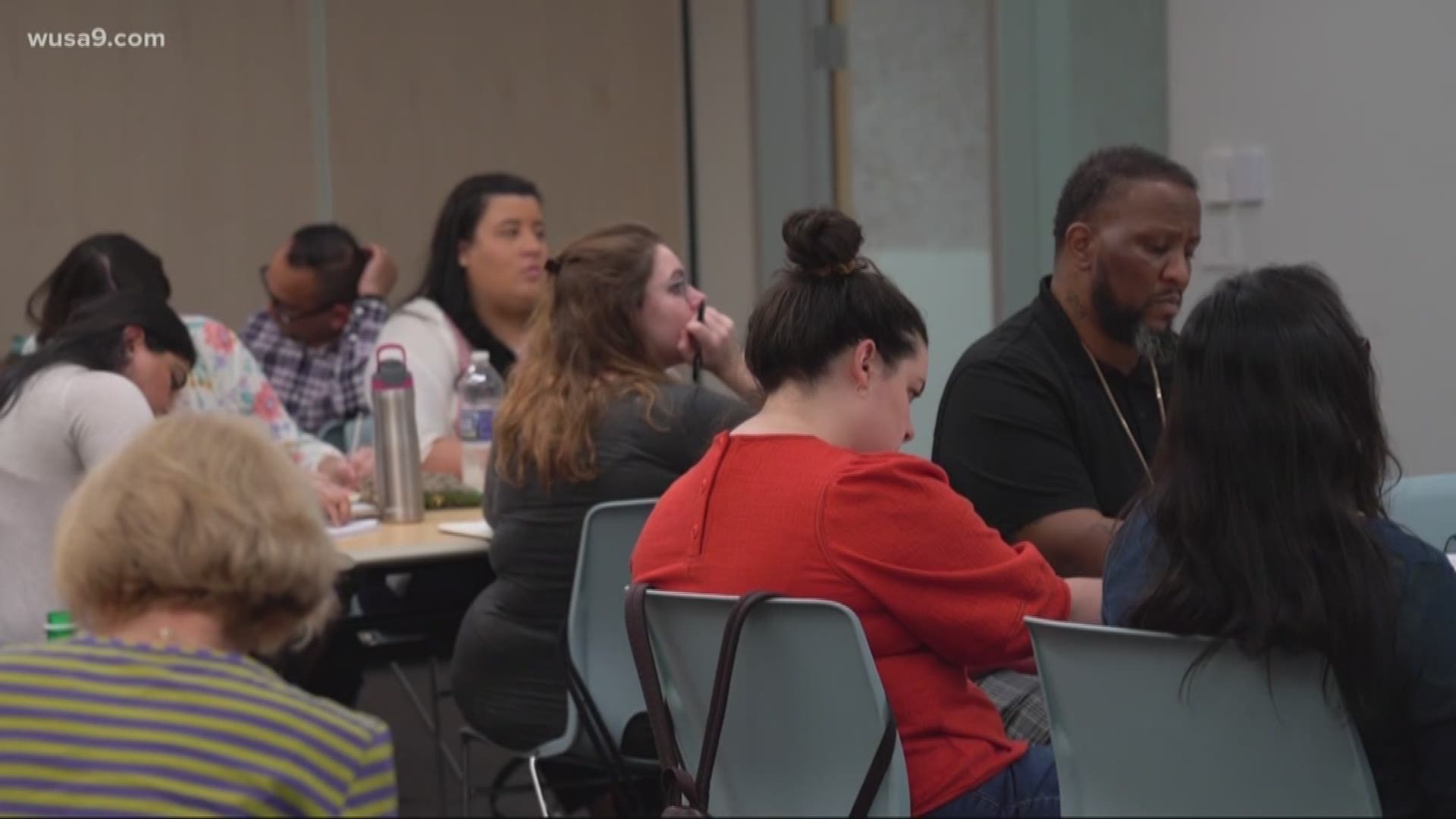ARLINGTON, Va. — President Trump's threat of mass deportations -- more than 2,000 families in 10 states -- has stoked fear among immigrant communities. The president postponed the U.S. Immigration and Customs Enforcement raids, asking Congress to work out a solution. But if there's no deal, he Tweeted deportations would start in a week and a half.
Now, undocumented immigrants are being taught how to push back by using their rights granted in the United States Constitution.
"If they have a list of 2,500, by God, they're going to arrest 2,500," Simon Sandoval-Mosenberg with the Legal Aid Justice Center, said.
He said what's so frightening about President Trump's immigration policy is the randomness of it. Even if a person doesn't have a deportation order, he said ICE will round them up anyway. Sandoval-Mosenberg said this didn't happen under the Obama administration.
"They do an operation, and they proudly trumpet how many people they arrested and at the way bottom of the press release will say, 'Oh, by the way, of the 150 we arrested, 60 of them were on our target list,'" Sandoval-Mosenberg said. "That means 70 of them weren't. They call them collateral arrests and that means they were in the wrong place at the wrong time."
He wants undocumented immigrants to know their rights in United States. He's teaching service providers -- social workers, teachers, church leaders -- so they can help immigrants learn how to protect themselves and keep families together.
"We're not saying not to be afraid," Sandoval-Mosenberg said. "There's plenty to be afraid of. But you can channel that fear into action and you can take proper steps to mitigate your risks instead of just being in a state of panic."
His number one rule is: Don't Open the Door. He said if ICE knocks on the door, immigrants needs to know the Fourth Amendment allows them to refuse a search of their home without a warrant -- rarely, he said, do ICE agents have warrants.
His second rule: Remain Silent. He said ICE officers will ask immigrants for their identification or to see their papers. He said Immigrants need to know they don't have to comply, it's their right to remain silent -- that's the Fifth Amendment right.
However, Sandoval-Mosenberg said people need to know they must invoke the right to stay silent and say those words.
To help the service providers teach immigrants those lessons, they learned a chant in Spanish.
Part of the chant states that immigrants have a right to speak to a lawyer, which Sandoval-Mosenberg said needs to be stated said if they wind up in detention centers.

